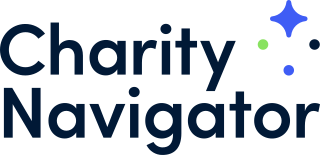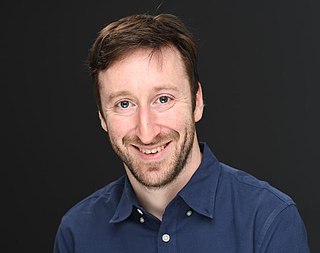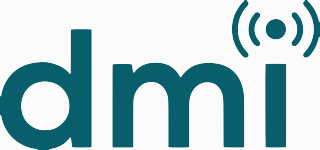Related Research Articles

A donation is a gift for charity, humanitarian aid, or to benefit a cause. A donation may take various forms, including money, alms, services, or goods such as clothing, toys, food, or vehicles. A donation may satisfy medical needs such as blood or organs for transplant.

Fundraising or fund-raising is the process of seeking and gathering voluntary financial contributions by engaging individuals, businesses, charitable foundations, or governmental agencies. Although fundraising typically refers to efforts to gather money for non-profit organizations, it is sometimes used to refer to the identification and solicitation of investors or other sources of capital for for-profit enterprises.
CharityWatch, known until 2012 as the American Institute of Philanthropy, is a 501(c)(3) nonprofit organization in Chicago, created in the United States by Daniel Borochoff in 1992, to provide information about charities' financial efficiency, accountability, governance, and fundraising.

Charity Navigator is a charity assessment organization that evaluates hundreds of thousands of charitable organizations based in the United States, operating as a free 501(c)(3) organization. It provides insights into a nonprofit's financial stability, adherence to best practices for both accountability and transparency, and results reporting. It is the largest and most-utilized evaluator of charities in the United States. It does not accept any advertising or donations from the organizations it evaluates.

The practice of charity, which is the voluntary provision of assistance to those in need, serves as a humanitarian act, and is unmotivated by self-interest. Various philosophies about charity exist, with frequent associations with religion.
GiveWell is an American non-profit charity assessment and effective altruism-focused organization. GiveWell focuses primarily on the cost-effectiveness of the organizations that it evaluates, rather than traditional metrics such as the percentage of the organization's budget that is spent on overhead.
Charity: water is a non-profit organization founded in 2006 that provides drinking water to people in developing nations. As of 2019, the organization has raised $370 million. According to the organization, it has funded 111,000 water projects in 29 countries though it does not know how many of the projects are still functional.

Water For People was founded in 1991 by the American Water Works Association (AWWA) as a response to the increasing water scarcity in developing countries. It is a nonprofit international development organization that helps people in rural parts of developing countries achieve greater access to drinkable and potable water and sanitation facilities. It works to accomplish the United Nations' 6th Sustainable Development Goal: availability of clean water and sanitation and comprehensive monitoring of freshwater facilities for the progression of human health. They seek to address the issue of nonexistent and suboptimal water and sanitation facilities across less-developed countries. With developing locally sustainable drinking water resources and sanitation facilities, Water For People also works to bring health and hygiene education programs to local districts. The non-governmental organization also works to empower and involve local governments, corporations, schools, homes, and individuals in the construction, financing, and maintenance of the water infrastructure. Water For People has established a year-round presence in 30 districts of nine developing countries, including Guatemala, Honduras, Nicaragua, Bolivia, Peru, India, Rwanda, Uganda and Malawi. In totality, Water For People reaches 4 million people.

Dean Karlan is an American development economist. He is Chief Economist of USAID and Professor of Economics and Finance at Northwestern University where, alongside Christopher Udry, he co-founded and co-directs the Global Poverty Research Lab at Kellogg School of Management. Karlan is the president and founder of Innovations for Poverty Action (IPA), a New Haven, Connecticut, based research outfit dedicated to creating and evaluating solutions to social and international development problems. He is also a Research Fellow and member of the Executive Committee of the board of directors at the Abdul Latif Jameel Poverty Action Lab (J-PAL) at the Massachusetts Institute of Technology. Along with economists Jonathan Morduch and Sendhil Mullainathan, Karlan served as director of the Financial Access Initiative (FAI), a consortium of researchers focused on substantially expanding access to quality financial services for low-income individuals.
Giving What We Can (GWWC) is an effective altruism-associated organisation whose members pledge to give at least 10% of their income to effective charities. It was founded at Oxford University in 2009 by the philosopher Toby Ord, physician-in-training Bernadette Young, and fellow philosopher William MacAskill.

Holden Karnofsky is an American nonprofit executive. He is a co-founder and Director of AI Strategy of the research and grantmaking organization Open Philanthropy. Karnofsky co-founded the charity evaluator GiveWell with Elie Hassenfeld in 2007 and is vice chair of its board of directors.
GlobalGiving is 501(c)(3) non-profit organization based in the United States that provides a global crowdfunding platform for grassroots charitable projects. Since 2002, more than 1.6 million donors on GlobalGiving have donated more than $750 million to support more than 33,000 projects in 175 countries.
The Mulago Foundation is a private foundation focused on high impact philanthropy: investing in charities and philanthropic opportunities that have the highest impact. The foundation was originally envisioned by Rainer Arnhold, a San Francisco pediatrician and philanthropist, who taught at Mulago Hospital, Uganda. The foundation was officially created by his brother Henry Arnhold after Rainer Arnhold's death in 1993.
Effective altruism (EA) is a 21st-century philosophical and social movement that advocates "using evidence and reason to figure out how to benefit others as much as possible, and taking action on that basis". People who pursue the goals of effective altruism, sometimes called effective altruists, may choose careers based on the amount of good that they expect the career to achieve or donate to charities based on the goal of maximising positive impact. They may work on the prioritization of scientific projects, entrepreneurial ventures, and policy initiatives estimated to save the most lives or reduce the most suffering.

Development Media International (DMI) is a non-governmental organization with both non-profit and for-profit arms that "use[s] scientific modelling combined with mass media campaigns in order to save the greatest number of lives in the most cost-effective way".
The Nonprofit Marketplace Initiative (NMI) was an initiative of the Effective Philanthropy Group of the Hewlett Foundation launched in 2006. Its closure was announced in the Chronicle of Philanthropy in April 2014.
Open Philanthropy is a research and grantmaking foundation that makes grants based on the doctrine of effective altruism. It was founded as a partnership between GiveWell and Good Ventures. Its current chief executive officer is Alexander Berger, and its main funders are Cari Tuna and Dustin Moskovitz. Dustin says that their wealth, worth $11 billion, is "pooled up around us right now, but it belongs to the world. We intend not to have much when we die."
Philanthropy poses a number of ethical issues:
ImpactMatters was an American charity assessment organization that evaluates the impact of charitable organizations.

In the philosophy of effective altruism, an altruistic act such as charitable giving is considered more effective, or cost-effective, if it uses a set of resources to do more good per unit of resource than other options, with the goal of trying to do the most good. Following this definition of effectiveness, researchers in psychology and related fields have identified psychological barriers to effective altruism that can cause people to choose less effective options when they engage in altruistic activities such as charitable giving. These barriers can include evolutionary influences as well as motivational and epistemic obstacles.
References
- ↑ Wasik, John F. (November 7, 2013). "How to Choose a Charity Wisely". New York Times. Retrieved 18 September 2017.
- ↑ Mathieson, SA (June 11, 2013). "How charity evaluators are changing the donations landscape". The Guardian. Retrieved 18 September 2017.
- ↑ "Understanding Charity Ratings". Consumer Reports. Retrieved November 2015.
- ↑ Gunther, Marc (5 April 2015). "Why Charity Navigator needs an upgrade". Nonprofit Chronicles. Archived from the original on 7 July 2015. Retrieved 6 July 2015.
- ↑ Ann Carrns. Charity Navigator Tweaks Its Rating System. New York Times. 27 May 2016.
- ↑ "Audit of charities encounters resistance", in The Star, by Raveena Aulakh and Amy Dempsey, published Tuesday Nov 15 2011
- ↑ Sarah Neville (3 October 2015). "Fundraising watchdog to oversee how UK charities raise money". Financial Times. Retrieved 8 April 2016.
- 1 2 3 Pitney, Nico (March 26, 2015). "That Time A Hedge Funder Quit His Job And Then Raised $60 Million For Charity". Huffington Post . Retrieved April 27, 2015.
- 1 2 "Young Duo to 'Clear' the Way for Charitable Giving". National Public Radio.
- ↑ Patricia Illingworth, Thomas Pogge, Leif Wenar. Giving Well: The Ethics of Philanthropy, Oxford University Press US, 2011. p. 124
- ↑ Peter Singer. The Life You Can Save: Acting Now To End World Poverty, Random House, 2009. Ch. 6, pp. 81–104
- ↑ "About GiveWell". GiveWell. Retrieved 18 December 2014.
- ↑ Rosenberg, Tina (December 5, 2012). "Putting Charities to the Test". Opinionator. The New York Times. Retrieved 18 March 2017.
- ↑ "Charities in the ethical spotlight". www.ethicalconsumer.org. Ethical Consumer. Archived from the original on 19 March 2017. Retrieved 18 March 2017.
- ↑ "How We Assess Charities". Giving What We Can. Archived from the original on 3 July 2014. Retrieved 18 March 2017.
- ↑ Mathieson, S. A. (11 June 2013). "How charity evaluators are changing the donations landscape". The Guardian. Guardian News and Media Limited. Retrieved 18 March 2017.
- ↑ Berger, Ken; Penna, Robert. "The Elitist Philanthropy of So-Called Effective Altruism".
- ↑ MacAskill, William. "What Charity Navigator Gets Wrong About Effective Altruism".
- ↑ "The Overhead Myth : Moving Toward an Overhead Solution".
- ↑ Brandt, Julie. "Overhead Costs: The Obsession Must Stop". Stanford Social Innovation Review. Retrieved July 15, 2014.
- ↑ Charity Commission for England and Wales, CHARITIES EVALUATION SERVICES, last reported for financial year ending 31 December 2013, accessed 6 August 2023
- ↑ NCVO, About NCVO Charities Evaluation Services, accessed 6 August 2023
- ↑ Charities Evaluation Services, CES planning triangle, archived 16 May 2014, accessed 6 August 2023
- ↑ Charities Evaluation Services (2007), Using an outcomes approach in the voluntary & community sector: a briefing on the independent evaluation of the first National Outcomes Programme, published by CES and the Open University
- ↑ Ellis, J., The case for an outcomes focus, Charities Evaluation Services, published September 2009, accessed 6 August 2023